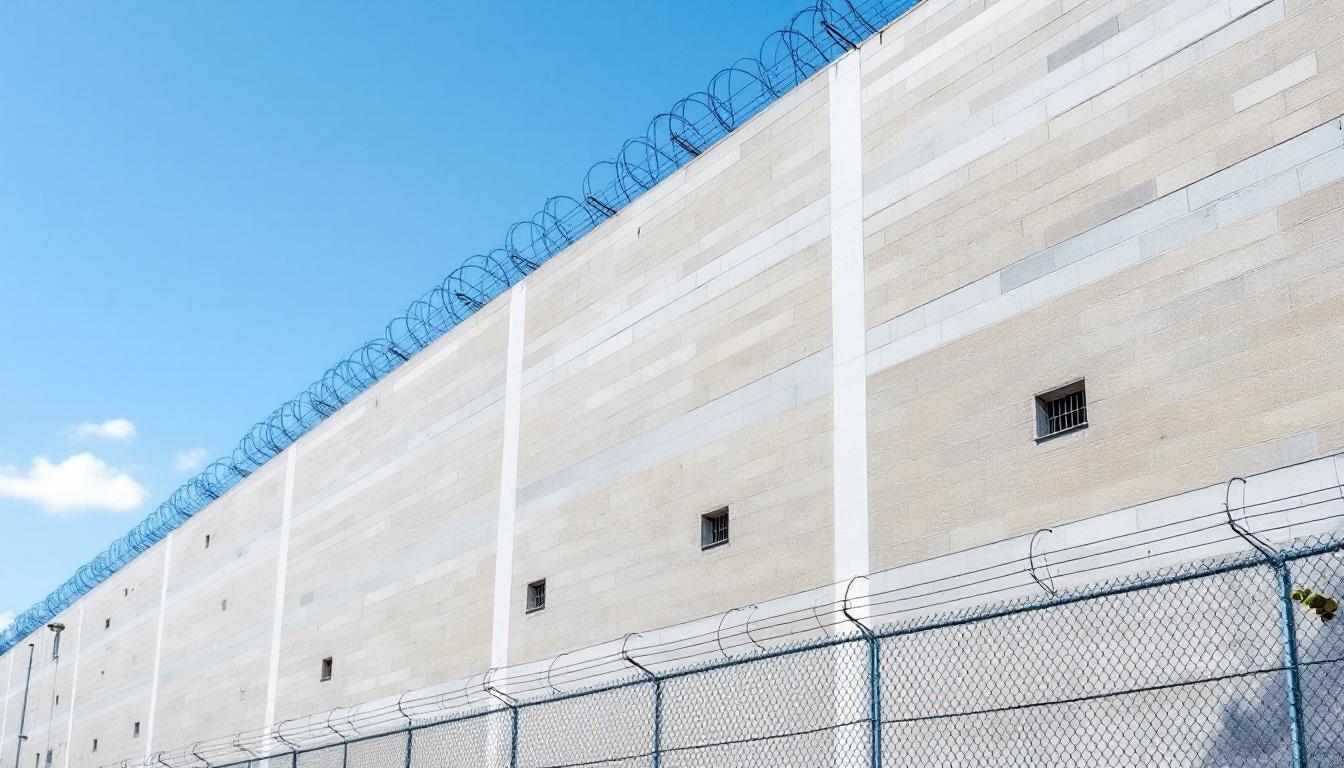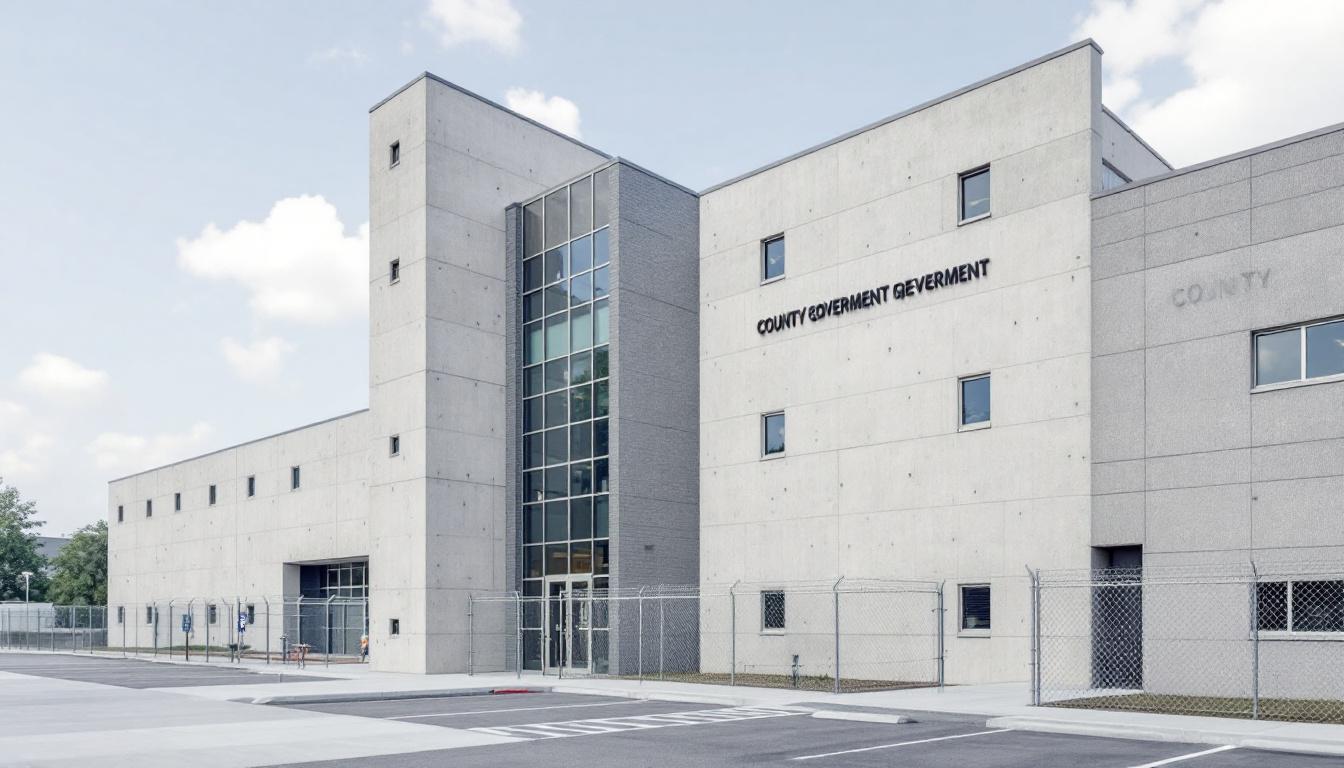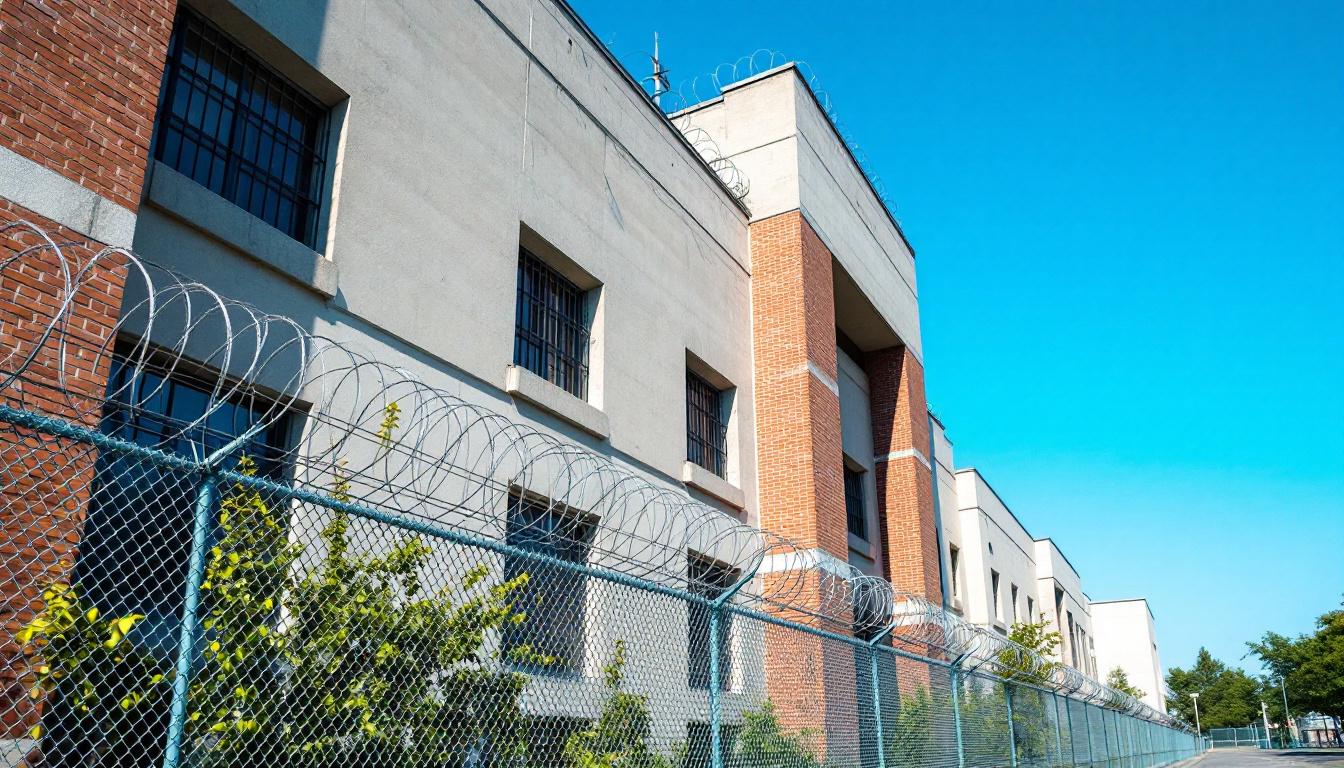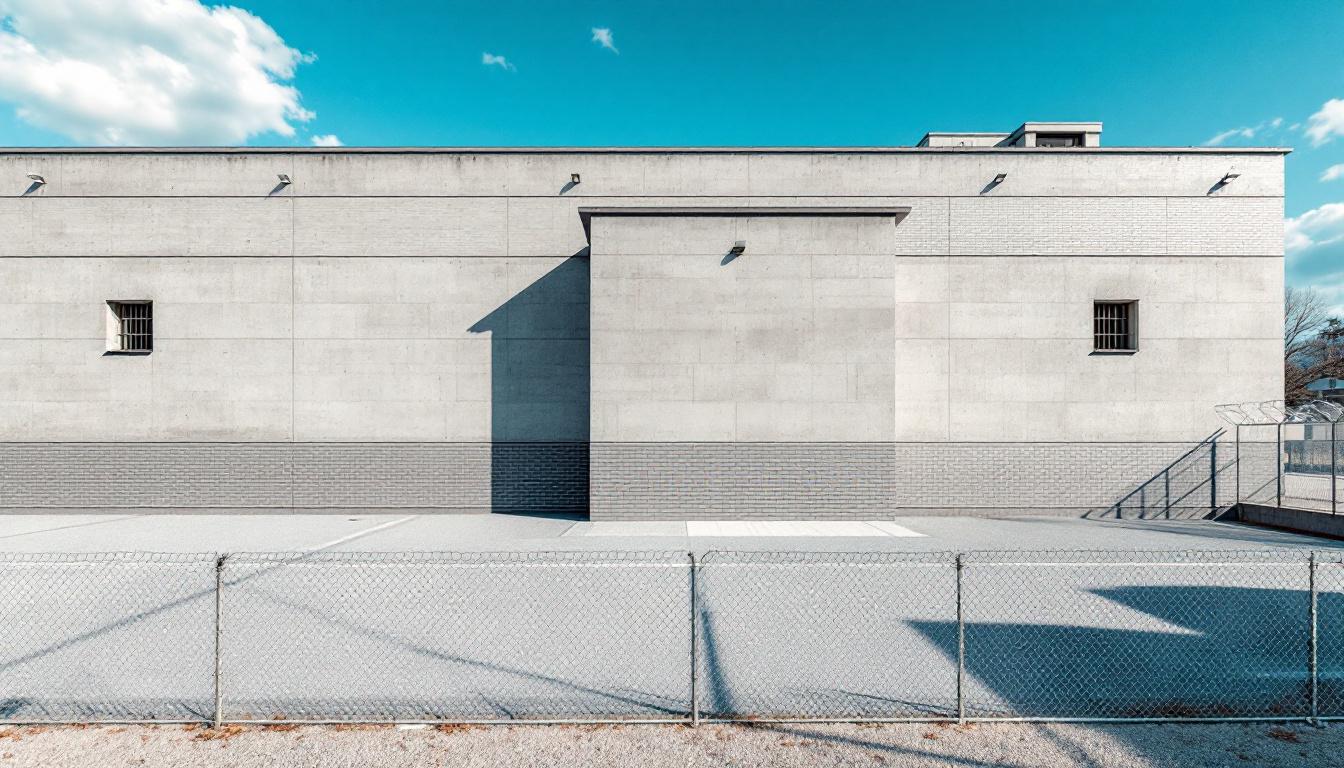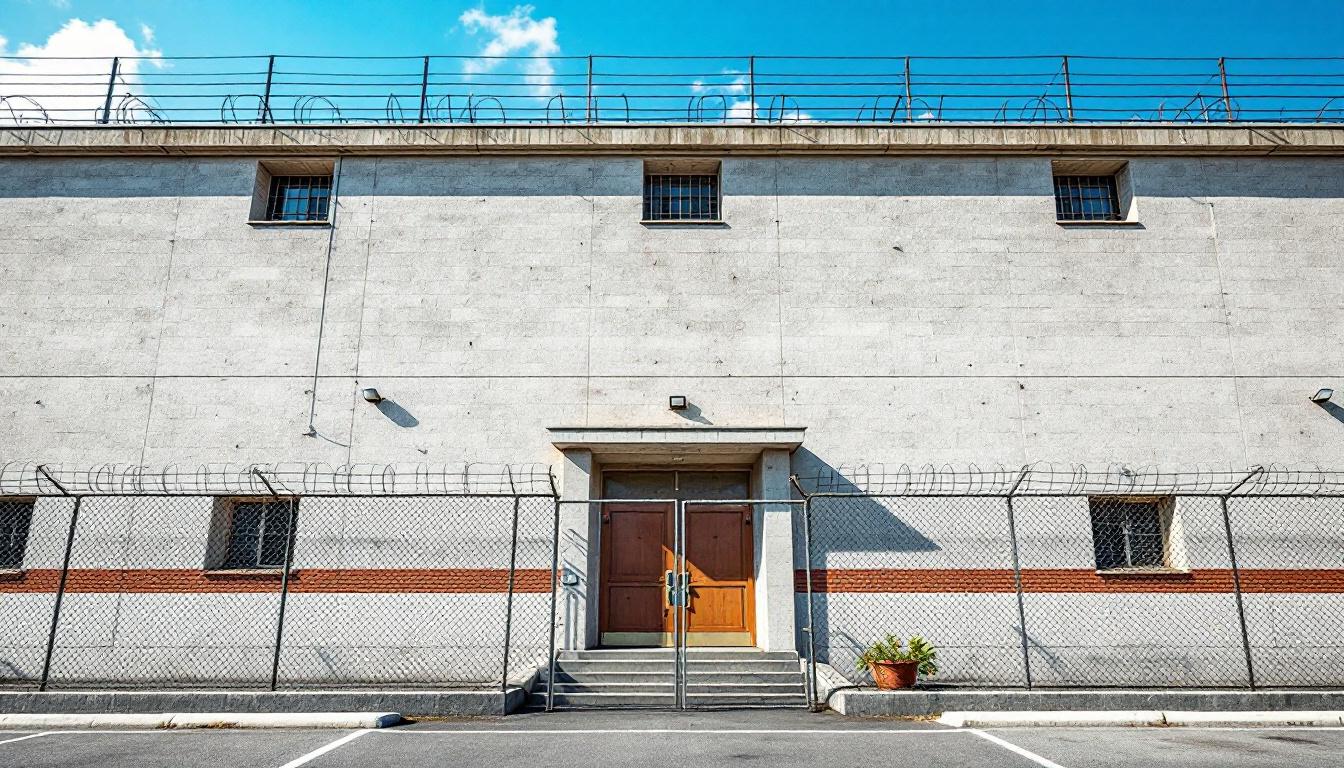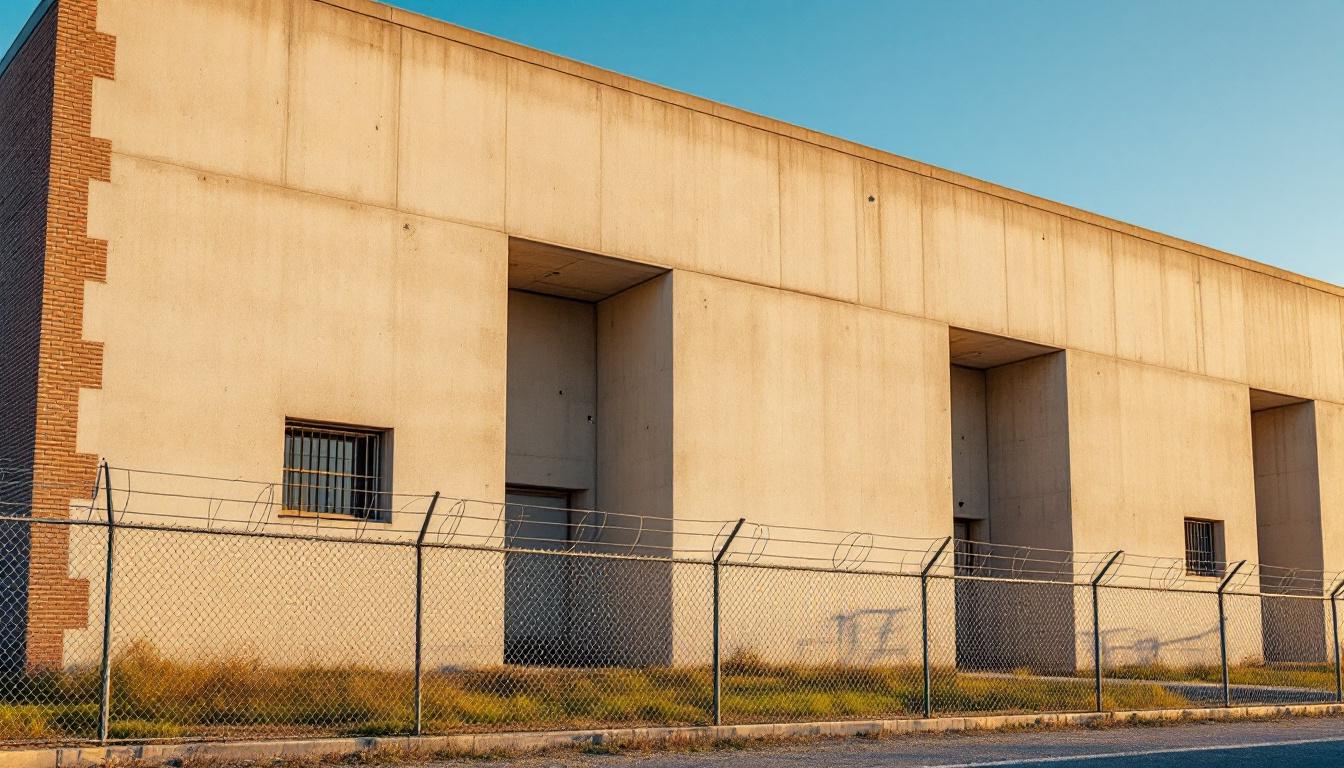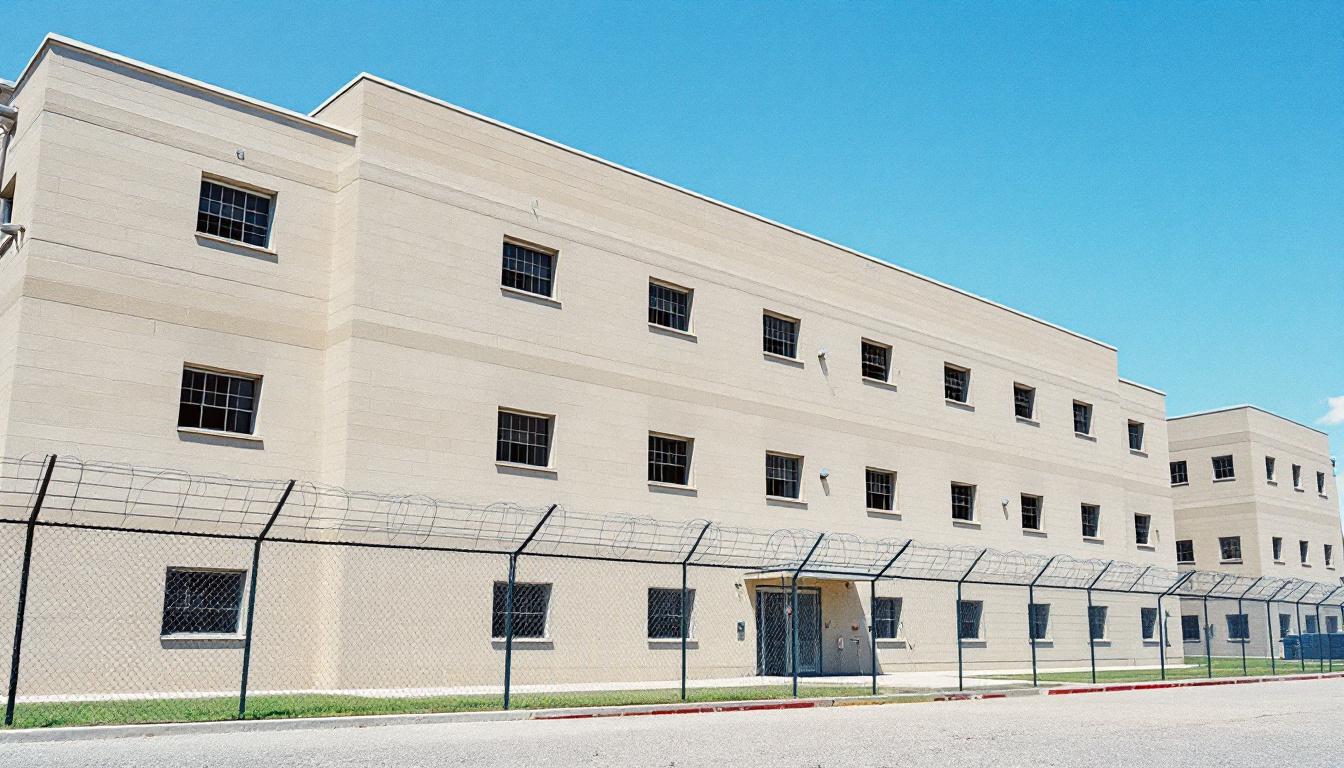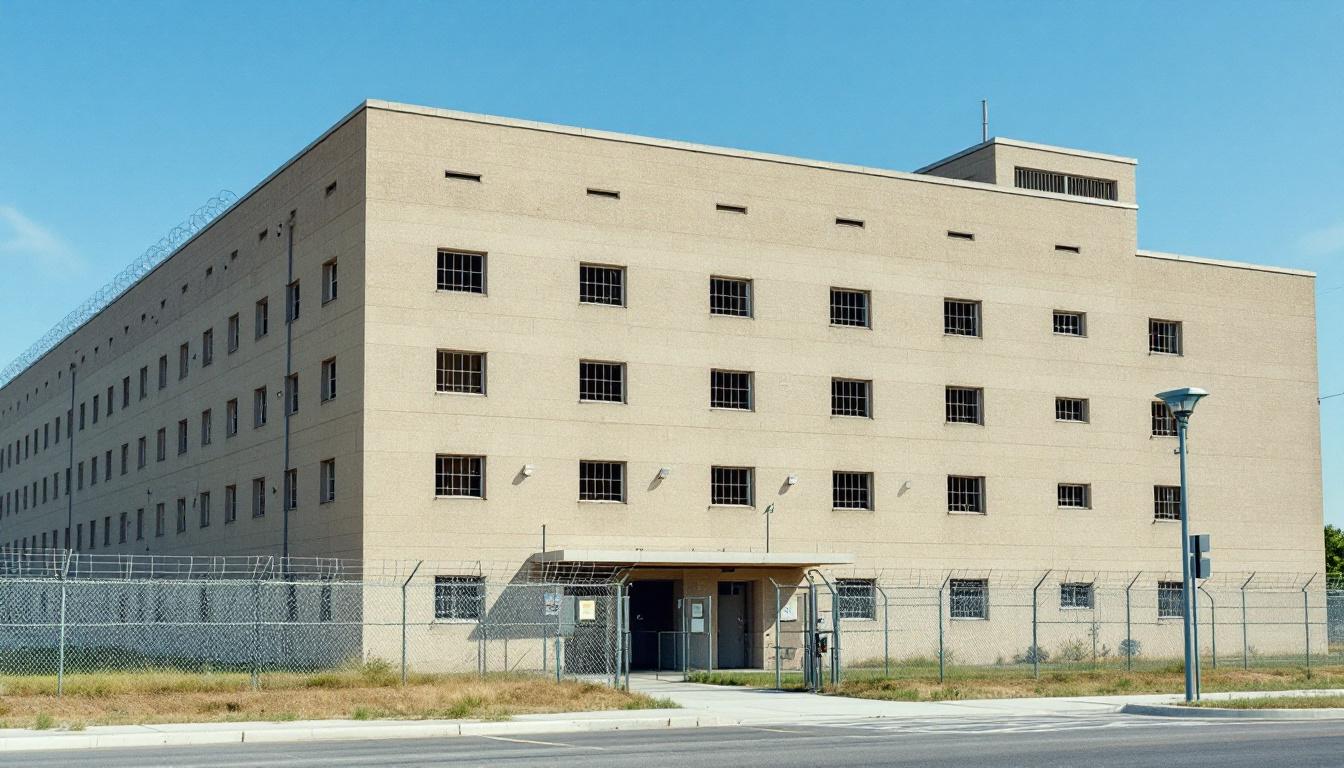
Quick Navigation
How to contact an inmate at Henley State Jail
This comprehensive guide will walk you through how to connect with an inmate at Henley State Jail. Follow the steps below to find an inmate and send letters and photos:
- Search for the inmate using our search tool below
- Create your account or log in to Penmate
- Write your message (up to 6,000 characters)
- Send instantly - inmates receive printed copies daily
Find an Inmate
Search for an inmate to start communicating today
Tip: You can search by first name, last name, or inmate ID number
To contact a person at Henley State Jail start by searching for the person on the official facility website. Perform a search by following these steps:
- Step 1: Enter their first name and last name into the search form and click "Search"
- Step 2: Locate their inmate record
- Step 3: Write down their Inmate ID and any housing information provided
Important! Be sure to enter the person's full name. Nicknames should not be used.
How to Send Messages to Inmates

You can use your phone or computer to send emails, letters, and photos to an inmate. Messages are sent electronically to inmate tablets or kiosks at the facility. If you would like to send a message, start by searching for an inmate at Henley State Jail.
Sending Photos and Postcards

A great way to send love and support to a loved one at Henley State Jail is to send photos and postcards. It only takes a few minutes to send photos from your phone and it makes a huge difference. You can also mail postcards with words of support and inspiration, or design your own postcard for special moments like birthdays and holidays.
Important! Be sure not to send any explicit photos or they may not be approved by the facility. You can also use a photo printing app like Penmate to make sure your photos are printed at the correct size (4x6 or 3x5) and are mailed according to the rules and regulations of Henley State Jail.
Frequently asked questions about Henley State Jail
-
How long does it take to deliver a message?
If you're sending an email message your letter is usually delivered within 24-48 hours. For messages sent via mail you should expect delivery within 3-7 days. All messages will need be approved by Henley State Jail.
-
How much does it cost to send a message to Henley State Jail?
You can send a message free using your phone or mail a message via USPS for the price of a $0.60 stamp and envelope. You can also purchase credits or e-stamps from services starting at $1.99.
-
What services can I use to contact an inmate at Henley State Jail?
Penmate
You can use Penmate to send letters and photos to an inmate from your phone. It's an easy way to stay in touch during your loved one's incarceration. Use the inmate locator to find an inmate's location and contact information, then you can send messages within a few minutes.
Securus messaging
Securus may be another option for communicating with an inmate at Henley State Jail. You can create a friends and family account and purchase credits to send messages. All messages will be reviewed and must be approved by the facility.
JPay
Some county jails and state prisons may support sending messages with JPay. You must register an account with the system, find your loved one, and purchase stamps to send messages. For some locations you can also attach photos.
Smart Jail Mail
You may also check if Smart Jail Mail is available at Henley State Jail. Smart Jail Mail is operated by Smart Communications and has contracted with some state and county jails. After purchasing credits, your messages and photos are sent to the facility, printed out, and then handed out to your loved one.
-
What is the mailing address of Henley State Jail?
Mailing address:
Henley State Jail
7581 TX-321
Dayton, TX 77535
Phone: (936) 258-2476 -
What are the visiting hours at Henley State Jail?
Visiting hours at Henley State Jail vary by housing unit and security level. Generally, visits are scheduled on weekends and holidays, with some facilities offering weekday visits. Contact the facility directly at (936) 258-2476 or check their website for the current visiting schedule. Visits typically last 30-60 minutes and must be scheduled in advance.
-
What items are prohibited when sending mail to Henley State Jail?
Prohibited items typically include: cash, personal checks, stamps, stickers, glitter, glue, tape, staples, paperclips, polaroid photos, musical or blank greeting cards, hardcover books, magazines with staples, and any items containing metal or electronics. Only send letters on plain white paper with blue or black ink. Photos must be printed on regular photo paper (no Polaroids). Always check with Henley State Jail for their specific mail policies.
-
How do I send money to an inmate at Henley State Jail?
You can send money to an inmate at Henley State Jail through several methods: 1) Online using JPay, Access Corrections, or the facility's approved vendor, 2) Money orders mailed directly to the facility with the inmate's name and ID number, 3) Kiosks located in the facility lobby, or 4) Over the phone using a credit or debit card. Fees vary by method, typically ranging from $2.95 to $11.95 per transaction.
-
Can I schedule a video visit with an inmate at Henley State Jail?
Many facilities now offer video visitation as an alternative to in-person visits. At Henley State Jail, video visits may be available through services like Penmate, Securus Video Connect, GTL, or ICSolutions. Video visits typically cost $10-20 for 20-30 minutes and must be scheduled in advance. You'll need a computer or smartphone with a camera and reliable internet connection. Contact the facility for their specific video visitation policies and approved vendors.
-
What identification do I need to visit an inmate at Henley State Jail?
All visitors must present valid government-issued photo identification such as a driver's license, state ID, passport, or military ID. Minors must be accompanied by a parent or legal guardian who can provide the minor's birth certificate. Some facilities require visitors to be on the inmate's approved visitation list, which may require a background check. Contact Henley State Jail for specific ID requirements and visitor approval procedures.
-
How can I find out an inmate's release date?
To find an inmate's release date at Henley State Jail, you can: 1) Use the online inmate search tool if available, 2) Call the facility's records department, 3) Contact the inmate's case manager or counselor, or 4) Have the inmate provide this information during a call or visit. For privacy reasons, some facilities only release this information to immediate family members.
Facility Overview
Official Website

About Henley State Jail
Comprehensive rehabilitation programming and reentry preparation services form the operational foundation at Henley Unit, TX, where evidence-based interventions support long-term behavioral change and community integration outcomes. Educational opportunities, vocational training pathways, and therapeutic programming typically work in coordination to address the diverse needs of individuals within the facility's structured environment. Located within the Dallas metropolitan area, this TX correctional facility operates as an integral component of the state's broader correctional framework, emphasizing measurable progress toward successful community reintegration while maintaining secure custody operations that align with established departmental protocols and public safety objectives.
The facility's approach to individuals services generally encompasses multiple domains of personal development, including academic advancement opportunities, workforce preparation initiatives, and behavioral intervention programs designed to reduce recidivism rates and enhance post-release stability. Mental health services, substance abuse treatment options, and life skills development programming may be available to address underlying factors that contribute to criminal behavior patterns. Through systematic assessment processes and individualized case planning, staff members typically work to identify specific areas for improvement and create structured pathways toward rehabilitation goals that support both personal growth and community safety priorities within Texas's correctional system framework.
Programs & Services
A comprehensive array of developmental opportunities at Henley Unit reflects the facility's commitment to addressing the diverse needs of individuals through multiple pathways toward personal growth and skill development. The facility's approach recognizes that meaningful change often requires access to various types of programming that can address educational gaps, develop marketable skills, and provide therapeutic support. This multi-faceted strategy typically creates an environment where individuals can engage with different aspects of personal development simultaneously.
Educational and vocational training opportunities may offer individuals the chance to develop practical skills that can translate into employment prospects upon release. Vocational training programs often focus on trades and technical skills that align with current job market demands in Texas. These hands-on learning experiences typically provide individuals with both theoretical knowledge and practical application, allowing them to build confidence while developing marketable abilities. The structured nature of these opportunities often helps participants establish productive daily routines and work habits.
Furthermore, therapeutic and support services complement the educational offerings through individual counseling sessions that may address personal challenges and behavioral patterns. Work programs typically provide individuals with structured employment experiences within the facility, while faith-based initiatives often offer spiritual guidance and community support for those who choose to participate. Prison industries may provide additional work experience opportunities, and volunteer programs often connect individuals with community members who can offer mentorship and support throughout their incarceration and beyond.
Daily Life & Visitation
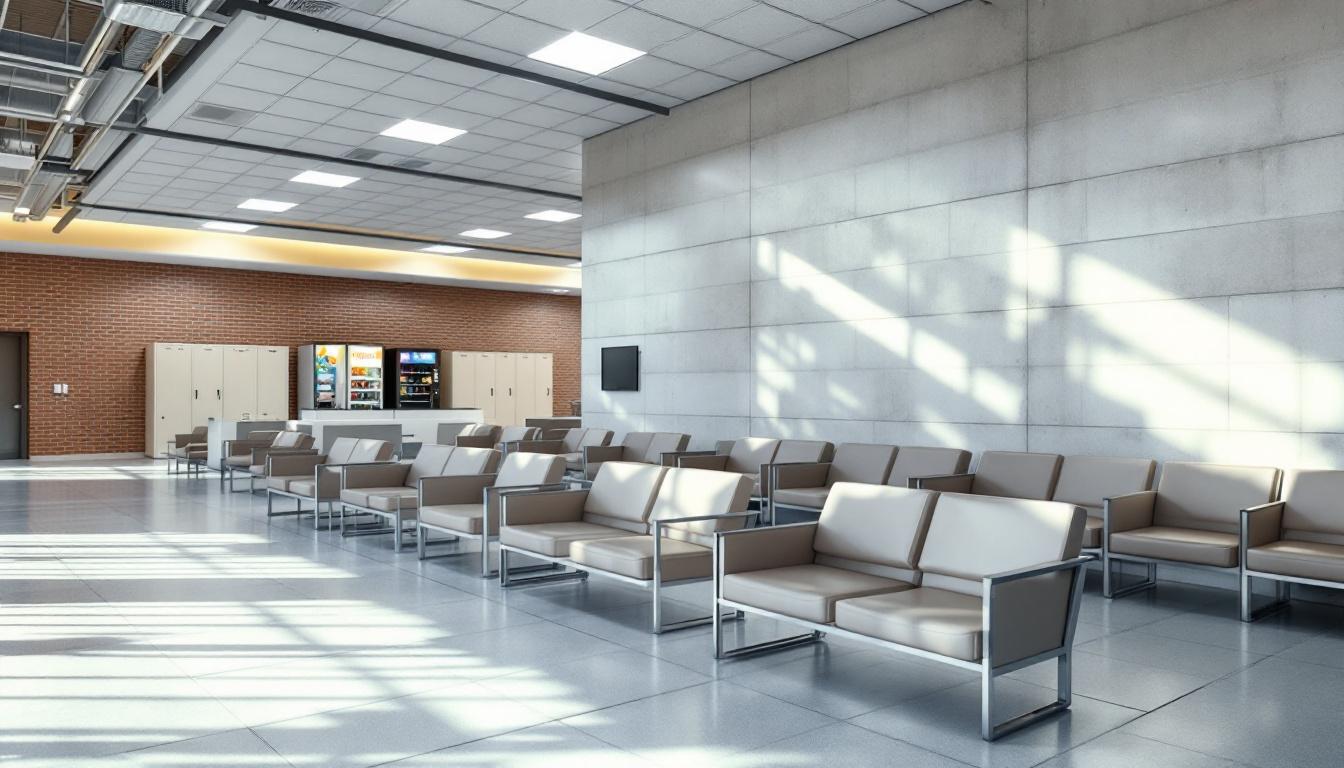
The sound of morning announcements echoes through housing units as individuals begin another structured day within the facility's walls. Life at Henley Unit currently operates on a regimented schedule that continues to provide predictability and routine for those housed there. Wake-up calls typically occur in the early morning hours, followed by personal hygiene time and preparation for the day ahead. Count procedures are conducted regularly throughout each day to ensure accountability and security. Individuals generally move between various activities and locations according to established schedules that may include work assignments, educational programming, or recreational periods.
Housing accommodations at the facility typically consist of dormitory-style living arrangements or cell-based housing units, depending on classification levels and security requirements. Individuals usually share living spaces with one or more roommates and have access to basic furnishings and storage for approved personal belongings. Furthermore, meals are served at designated times in common dining areas, with menus that often rotate to provide variety while meeting nutritional standards. The commissary system allows individuals to purchase additional food items, hygiene products, and other approved goods using funds from their institutional accounts.
Although daily routines are highly structured, various programs offer opportunities for personal development and skill-building. Work assignments may include kitchen duties, maintenance tasks, laundry operations, or other facility support roles that provide individuals with job experience and modest compensation. Educational and vocational training programs are typically available, along with recreational activities that might include organized sports, fitness opportunities, and leisure time in designated areas. Family connections continue to be supported through scheduled visitation periods and telephone privileges, allowing individuals to maintain important relationships with loved ones on the outside. Mail correspondence also serves as a vital link to family and friends, though all communications are subject to standard institutional security procedures.
Ready to Connect?
Start communicating with your loved one today
Search for an Inmate
